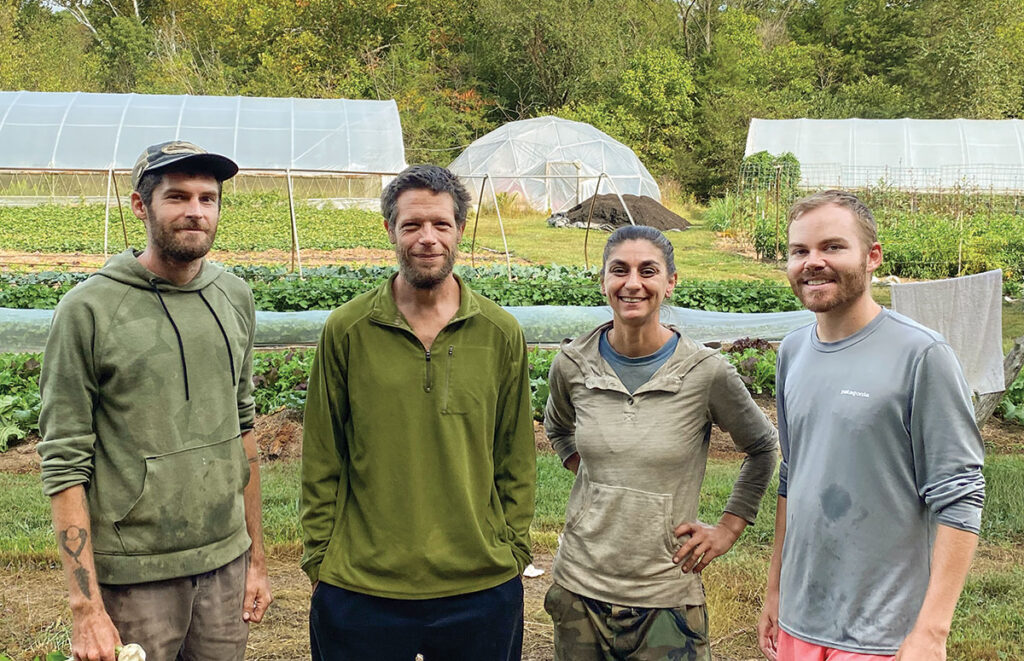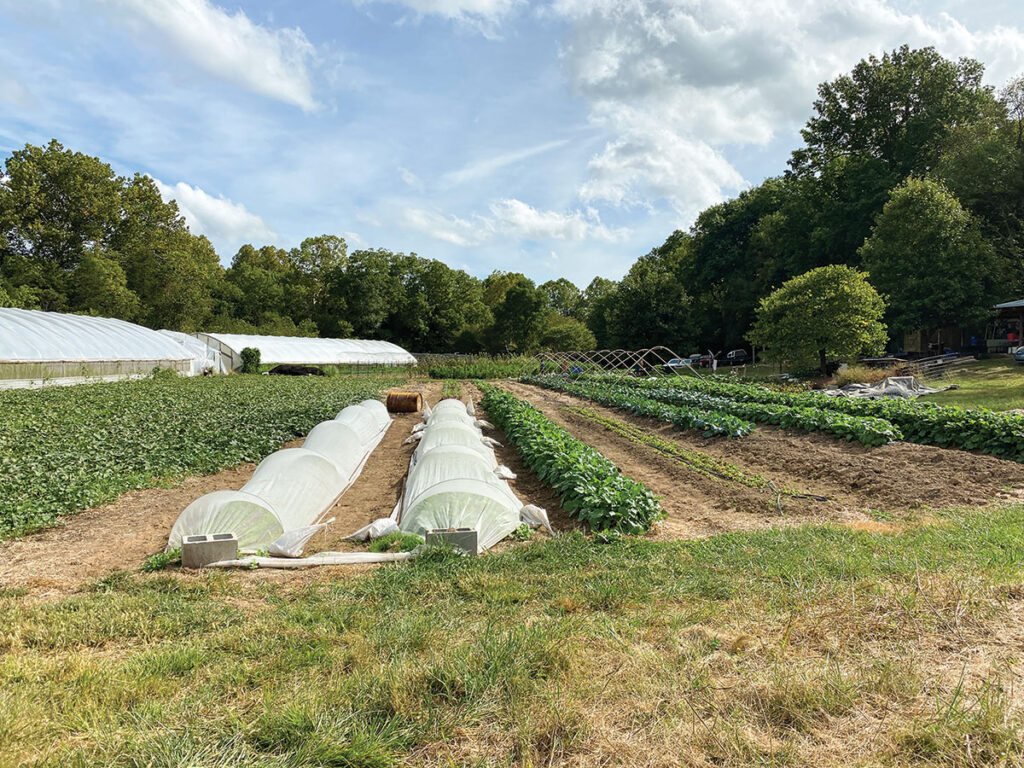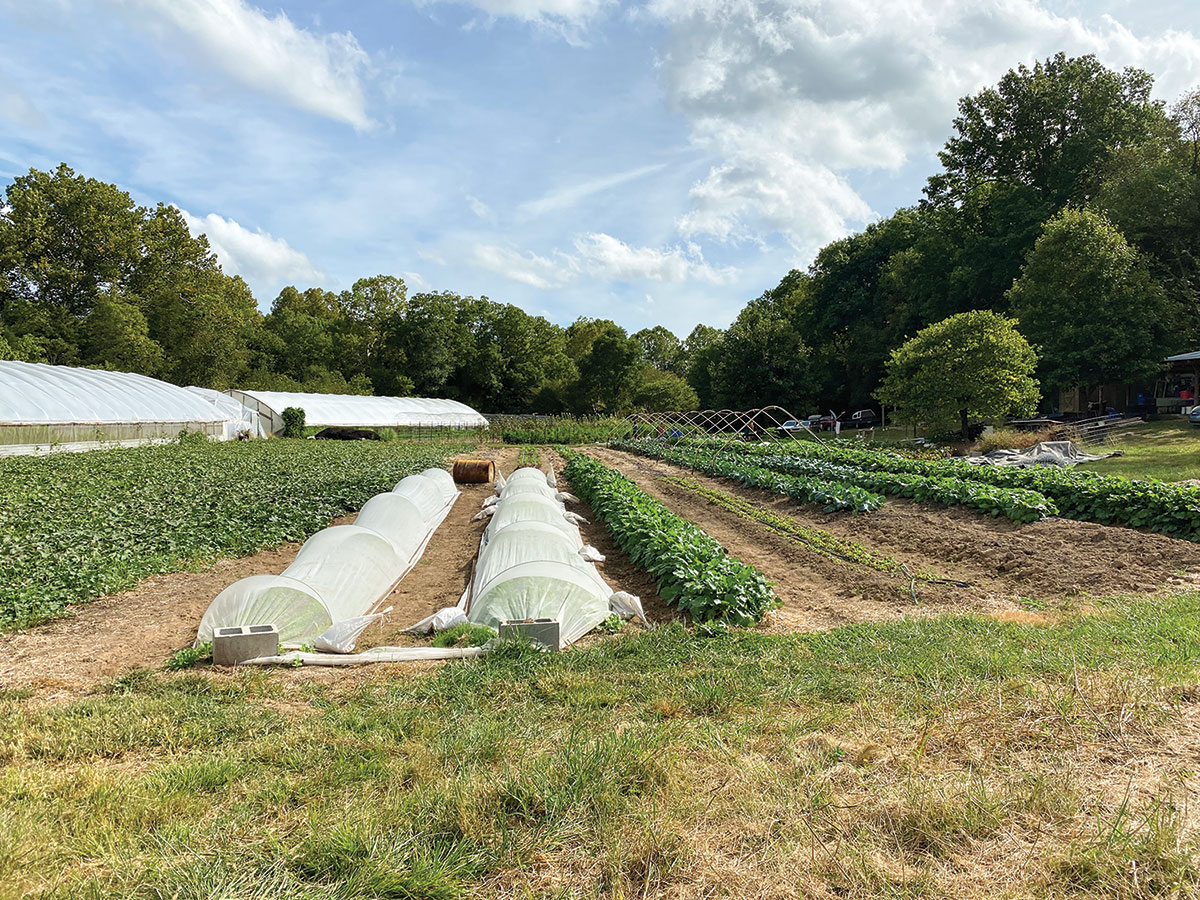
Sycamore Bend Farm is a small operation with a big impact
EUREKA SPRINGS, ARK. – Sycamore Bend Farm is a market garden owned by Andrew Schwerin and his wife, Madeleine Schwerin, on the bottomland between Eureka Springs and Berryville.
Starting in 2011, Sycamore Bend Farm has had the support from many hands. Petey Wesley, Roxy and Hobie are working to help the farm this year. Through the CSA – community-support agriculture – subscription program and The Food Conservancy of NWA, they have stayed close to the community while branching out to local restaurants and other businesses.
Andrew learned about the farming business while working on another farm: the Foundation Farm in Eureka Springs. Later, Madeleine also joined the farm. They met and got married. Now, they have three children: Beulah (9), Hans (7) and Scott (4). All the family, including the children, have a hand in working SBF.
“It’s a garden which is big enough to be on a commercial scale. So we grow everything for market,” Adrew said. SBF is 1 acre with three hoop houses.
Two elongated structured hoop houses together stretch across the entire garden. Growing inside are various herbs and spices. Centralized in between the two houses is a dome-shaped hoop house with sweet potatoes.
Petey was harvesting rosemary along one of the hoop houses. With his gardening clippers, he sniped off fresh rosemary straight from the shrubs and places it into a marked bag – ready to be sold.
The farm takes pride in its organic practices. By using regenerative methods and minimal machinery, the farm’s goal is to limit pesticides and soil disturbance by incorporating more natural forms of agriculture. One example is by insect screening. The crew stretches a long white mesh cloth over a row of vegetables, protecting them from flea beetles and other insects. This is a healthy alternative to harmful pesticides used by most commercial farming.
Roxy has worked all season helping with the farmers market. She seeds, moves compost and transplants the crops. This includes pruning Swiss chard by removing the spotted old leaves from the outer edges, so that the inner leaves can grow fuller and absorb more nutrients from the soil. Their vibrate red color stems and leafy green leaves make them easily recognizable.
Hobie was harvesting jalapeno peppers. Nearby were sweet peppers, habanero peppers and scotch bonnet peppers. Lined in straight formation, he picks off them one-by-one.
This year, SBF has been fruitful, producing a vast variety of fruits and vegetables. These include rhubarb, Japanese turnips, lettuce, radishes, tomatoes, squash, cucumbers, sweet potatoes and hot peppers. These are just fraction of what the farm produces.
“Boy, hot peppers, especially the shishito peppers. That’s been crazy,” Hobie said. “You wouldn’t think of it. We’ve honestly got quite a bit more rhubarb than I thought we’d get out here. The okra is going pretty well. Kale has been consistent and faithful.”

Sweet potatoes have also been doing well this year.
“We just done a bunch of sweet potatoes recently,” Roxy said. “That would have been something to see. There’s tons and tons of ‘em.”
With all their fresh produce and crops, SBF delivers their harvest to The Food Conservancy of NWA, which is a hub for local farmers and businesses.
“They’re kinda like a wholesale hub. They have their distribution channels, so sometimes we have product that they want and we want to sell,” Andrew explained.
The food conservancy sells SBF produce to various markets and business. This has given the farm better outreach and access to larger markets like Harps, Hart’s Family Center Inc, Harter House and other local restaurants.
SBF takes advantage of the Community-supported agriculture or CSA system.
“We do a CSA. It’s a subscription service where people get boxes each week. A box of vegetables,” Andrew said. The CSA is a system that connects the farmers and consumers more closely. This gives customers more freedom to customize their orders. Among the variety of produce, customers can pick what produce they want.
Consumers can order their “veggie box” via online.
“I put those into the computer, so that people can see what they’re supposed to be getting,” Andrew said. “They can make some switches or some changes and order more or less things. And then, they know exactly what they are getting for Saturday.”
SBF has more than 40 subscribers. They can pick up their veggie boxes at designated places around Holiday Island and Eureka Springs. SBF also delivers veggie boxes to consumers’ homes or businesses as well.
Compared to some commercial farming, SBF may seem like a minor operation, but it’s their simplicity and organic practices that separate them from their farming contemporaries. These ties to old world methods while embracing new farming techniques bring to mind what farming is all about: hard work, passion and consistency.
SBF is an all-year-round operation. The family stays close to the farm and prepares for the upcoming new seasons. They calculated these preparation months in advance. The trick is to keep up with nature. With support from the community, such as the CSA and The Food Conservancy, SBF will be ready for a new day and a new year.







